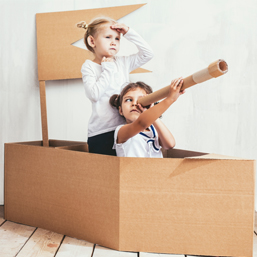
Boredom. We’ve all felt it. Children complain of it. Boredom is a feeling we experience when the brain is unsatisfied in its search for stimulation. In a world where stimulation is constant and all around us, it’s easy to see why boredom might feel unfamiliar and uncomfortable. It tends to be something we seek to avoid. Yet without boredom, we would all be pretty boring!
Life is not a video game. It is filled with many dull spaces interspersed with moments of excitement. Imagine if excitement was all we experienced all day. Our minds would be on overload. Brains under constant stimulation don’t learn or function well. Boredom is natural and normal. It is an experience to be embraced rather than avoided. Boredom is not about concentration; it’s about a mind left to wander and wonder. Not only does boredom open the door to creativity and possibilities, but it is where resilience is built.
Resilience is learning to adapt to difficult or challenging experiences. Boredom is one such experience where children have the opportunity to learn life-long skills in developing tolerance for discomfort, where creativity and curiosity are enhanced, and where relationships are built. Children with high levels of resilience tend to move more easily through childhood and adolescence, and function with more positive strength as adults. Navigating boredom is not the most difficult challenge we will face when raising our children, but it may be one of the hardest to resist giving in to when our children are looking for us to fix it for them.
Boredom is personal. What is highly stimulating for one person may not be for another. Because of our differences in personality, tastes, interests, and history, it is hard to please everyone all of the time. It is our responsibility to take ownership of our own feelings and experiences rather than trying to put it on someone else to entertain us. We need to provide opportunities for our children to learn to combat their boredom on their own. When a child has the ability to manage their experience of boredom, they come to learn they are capable of managing their other experiences as well.
When we are trying to avoid the discomfort of boredom, we rob ourselves and our children of the opportunity to experience the benefits of it. Boredom is where we can tap into our creative minds, reflect on our lives, remember people and moments, and where new ideas are generated. It’s at these times, when the mind is untethered from some other compelling attention-grabbing situation where creative thought and new ideas live. Boredom embraced is where many ‘ah-ha’ moments come from.
Children who complain of boredom, and who are encouraged to find something to keep themselves entertained, can actually be quite good at doing so. They might make up games, create new characters, become more observant of their world, watch clouds, build, sing and dance, and simply tap into their infinite creative minds. When we try to alleviate our child’s discomfort, they are losing out. We are teaching them to look outside themselves for stimulation rather than to create it for themselves. While there may be some complaining about ‘nothing to do’, with practice (like anything) children are more than capable of finding all kinds of interesting ways to entertain themselves.
Some children express boredom with school. Our children need the skills to manage their own experiences. Teachers and children are in a relationship where each needs to bring something to the table to create learning. Teachers bring activities and opportunities. Children need to bring curiosity and motivation. When children do not have experience with moving through boredom and expect the adults in their world to remedy this, they are missing a key component of long-term success and risk struggling more in their learning satisfaction. Developing tolerance for boredom is critical to individual autonomy and success.
As Nietzsche said, “is life not a thousand times too short for us to bore ourselves?” Our minds are infinite and possibilities abound within it. Boredom, our experience and management of it, is completely within our individual control. Not only is boredom the door to a creative and curious mind, it’s a necessary ingredient for good health and positive growth.
Nicole is a registered psychologist in the province of Alberta. She has been working with children and families for over 30 years in various capacities. Nicole holds a permanent teaching certificate and has an understanding of classroom functioning. She is passionate about supporting children and families in achieving success and dignity in their lives through assessment, intervention, and collaborative approaches. sheldonpsychology.com
See our relates articles:
Calgary’s Child Magazine © 2024 Calgary’s Child